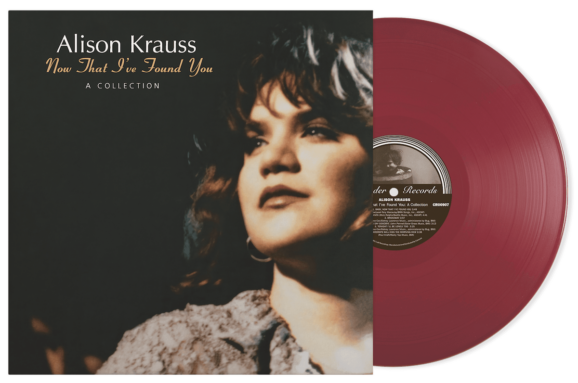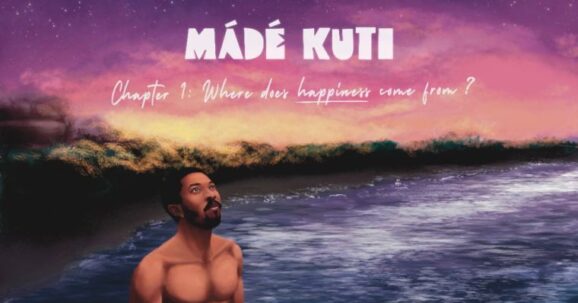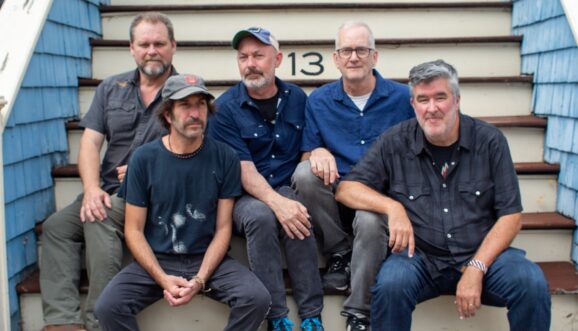Even Van Morrison’s most ardent fans weren’t sure he could write songs like several that appear on his 43rd studio album, Remembering Now. It’s like three plus decades of duets, reissues, skiffle, blues, and otherwise uninspired R&B vanished. That’s not to say there were not a few high points in that series of records. The collaborations with the late Joey DeFrancesco were certainly inspired. Yet now Van has, to use a frequent lyric of his that we also hear on this effort, “take me back.” Indeed, he returns us to bask in ‘the sense of wonder,’ and to revisit Hynford Street and the various landmarks of Belfast from his youth. The title even suggests breaking through a mental block, lifting a proverbial curtain, to the point where he repeatedly says in the title track, “This is who I am.” Even his never-ending quest to find God in the most simple things, such as ‘green fields of summer’ and rain (probably the misty kind), is here. We are transported to THAT Van Morrison of lush meditations found on Poetic Champions Compose, Enlightenment, and to Veedon Fleece, Into the Music, and Common One. Add No Guru, No Method, No Teacher, and Sense of Wonder to this grouping. At 80 his distinctive voice remains as powerful and remarkably emotional as ever. He hasn’t made a perfect record, but most tracks are worthy.
His core band has been with him since 2019. They are Richard Dunn (Hammond organ), Stuart McIlroy (piano), Pete Hurley (bass), and Colin Griffin (drums). Fiachra Trench, whose history with Morrison goes back to 1989’s Avalon Sunset, does the string arrangements, performed by the Fews Ensemble led by Joanne Quigley. There are also horns, Seth Lakeman’s fiddle, and the usual gospel-tinged background vocalists.
The single and album opener, “Down to Joy,” which first appeared in Kenneth Branagh’s acclaimed film Belfast, is soulful and uplifting R&B, similar to “Real Real Gone” or “Bright Side of the Road.” Yet, we find the Van of the transcendent in the pensive “Haven’t Lost My Sense of Wonder,” a simple tune that sends us into that dreamy state we recall from his late ‘80s records. The lightly swinging “Love, Lover And Beloved” is the first of several where Morrison centers on the theme of love. The words are taken from a book by Michael Beckwith, leader of Agape, the L.A.-based spiritual center. The buoyant “Back to Writing Love Songs” is a bit repetitive but shows us that Morrison hasn’t lost his knack for an infectious pop hook.
At its midway point, Morrison moves from the ‘now’ to the remembrances of favorite Belfast landmarks, beginning with the chamber music-like “The Only Love I Ever Need Is Yours.” It’s one of three written with recent collaborator Don Black, who, reputation notwithstanding, isn’t a superior lyricist to Van. Yet, “One In a Lifetime Feelings” succeeds musically on the strength of Lakeman’s violin and bluesy guitar from Morrison. “Stomping Ground” swells with a gorgeous string arrangement that culminates in a Morrison robust saxophone solo. As he tries to delineate the differences between then and now, the classy, serene “Memories and Visions” is one of those ‘finding God’ songs. “When the Rains Came” is this album’s equivalent to “In the Garden” from No Guru, No Method, No Teacher or “When Heart Is Open” from Common One, with the closing incantation, “Take my hand, walk with me.” We even have a long-form song, like those found on the latter album, in the closer, “Stretching Out.” Morrison revisits “Shady Lane,” perhaps this century’s “Cyprus Avenue,” viewed through an aged perspective. Consider he was only 22 years old when he cut Astral Weeks. Most of us probably thought he couldn’t still pull a song of this ilk from his bag. He even says, perhaps confessionally, “Do I know you from way back?”, a direct admission that he recognizes the artistry that made him so great. He’s found his ‘mystic mojo’again.
As we mentioned, the album is not perfect. As Morrison often does, he makes the album too long with ‘filler’ songs – “If It Wasn’t for Ray” (a failed attempt at honoring his main influence, Ray Charles), “Cutting Corners,” and “Colourblind,” the latter annoyingly placed in the spellbinding songs in the album’s latter half. Take most of the songs that are left and arguably you have the best music Van Morrison has presented in over three decades.








One Response
This Album is Wonderful it also takes the listener way back too
The music is delicious and some of the songs are like Hymns.
Rave On VM